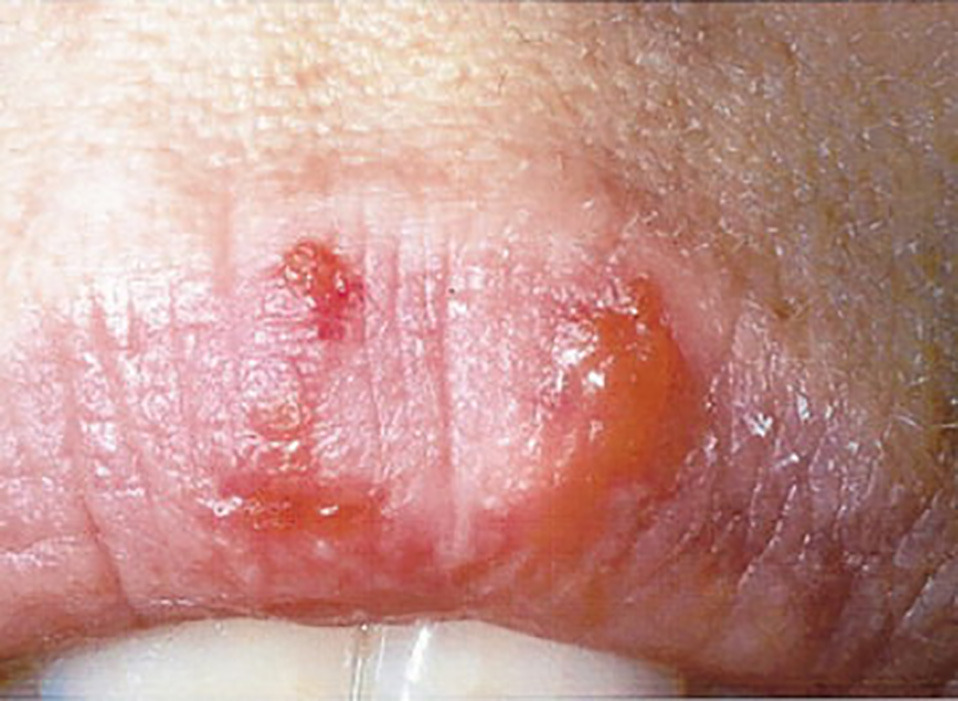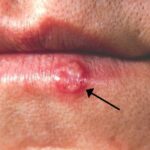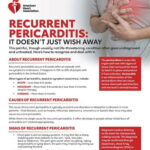Recurrent mucocutaneous herpes simplex is characterized by repeated outbreaks of herpes simplex virus (HSV) infections, affecting the skin and mucous membranes. The causative agents, HSV-1 and HSV-2, establish lifelong latency after initial infection and reactivate intermittently, leading to painful vesicular eruptions typically localized to the oral, genital, or perianal regions.

Etiology and Risk Factors of HSV Reactivation
Following primary infection, HSV resides in a latent state within the dorsal root or trigeminal ganglia. Various triggers can provoke viral reactivation, resulting in symptomatic mucocutaneous lesions:
- Emotional and physical stress
- Ultraviolet light exposure
- Immunosuppression (e.g., HIV, chemotherapy)
- Hormonal fluctuations
- Trauma or surgery
- Concurrent infections or fever
Recognizing and mitigating these factors are essential for reducing recurrence frequency.
Pathophysiology of Recurrent Herpes Simplex Infection
The biological cycle of recurrent mucocutaneous herpes simplex includes:
Upon reactivation, the virus travels along the nerve axons to the skin or mucosa, causing localized inflammation, cell lysis, and characteristic vesicle formation.
Clinical Manifestations of Recurrent HSV Infections
Oral Herpes (HSV-1 Dominant)
- Prodrome: Tingling or burning around the lips.
- Lesions: Clusters of clear vesicles that rupture, crust, and heal within 7–10 days.
Genital Herpes (HSV-2 Dominant)
- Prodrome: Genital itching, burning, or pain.
- Lesions: Painful ulcers and vesicles on the genital or anal areas, healing within 2–4 weeks.
Recurrent episodes are typically less severe than primary infections, with reduced systemic symptoms.
Diagnostic Strategies for Recurrent Mucocutaneous Herpes Simplex
While clinical presentation often suffices, laboratory confirmation enhances diagnostic accuracy:
- Polymerase Chain Reaction (PCR): Highly sensitive for detecting HSV DNA.
- Viral Culture: Useful for active lesions but less sensitive, especially for recurrent cases.
- Direct Fluorescent Antibody (DFA) Testing: Rapid identification of HSV antigens.
- Serologic Testing: Detects HSV-specific antibodies, helpful in ambiguous cases.
Correct identification of HSV type (HSV-1 or HSV-2) informs prognosis and management strategies.
Treatment Modalities for Recurrent Mucocutaneous Herpes
Episodic Antiviral Therapy
Initiated at the onset of prodromal symptoms to minimize outbreak duration:
- Acyclovir 400 mg orally five times daily for 5 days
- Valacyclovir 2 g orally twice in one day
- Famciclovir 1,500 mg orally once
Topical agents may offer mild symptomatic relief but are less effective than systemic therapy.
Suppressive Antiviral Therapy
Indicated for individuals with frequent or severe recurrences, or for reducing transmission risk:
- Acyclovir 400 mg orally twice daily
- Valacyclovir 500 mg to 1 g orally daily
- Famciclovir 250 mg orally twice daily
Suppressive therapy reduces recurrence frequency by 70%–80% and substantially improves quality of life.
Prevention of Recurrent Mucocutaneous Herpes Simplex
Implementing preventive strategies reduces the likelihood of HSV reactivation:
- Stress Management: Mindfulness, therapy, and relaxation techniques.
- UV Protection: Use of lip balms with SPF and avoiding excessive sun exposure.
- Healthy Lifestyle: Balanced nutrition, adequate sleep, and regular exercise.
- Safe Sexual Practices: Consistent condom use and disclosure to partners to prevent genital herpes transmission.
- Immunization Research: Investigational vaccines are under study to prevent HSV infection and recurrence.
Patients at high risk of reactivation may benefit from preemptive antiviral therapy before known triggers.
Complications of Recurrent HSV Infections
Complications, though less common with recurrent episodes, can include:
- Herpetic Whitlow: HSV infection of the fingers.
- Herpes Gladiatorum: HSV spread among athletes in contact sports.
- Eczema Herpeticum: Disseminated HSV infection in patients with pre-existing skin disorders.
- Psychosocial Impact: Chronic recurrences may contribute to anxiety, depression, and social withdrawal.
Early intervention and comprehensive patient education can mitigate these outcomes.
Future Directions in HSV Management
Advancements in molecular therapies, novel antiviral agents, and immunotherapeutic vaccines are promising future interventions. Current clinical trials aim to achieve better latency control and potentially eradicate HSV from neuronal reservoirs, revolutionizing the management of recurrent mucocutaneous herpes simplex.
Recurrent mucocutaneous herpes simplex represents a significant clinical burden with considerable psychosocial impacts. Through early recognition, effective antiviral therapy, patient education, and preventive strategies, we can successfully manage recurrences and improve patient outcomes. Future research offers hope for more definitive therapies, potentially altering the lifelong course of HSV infection.

